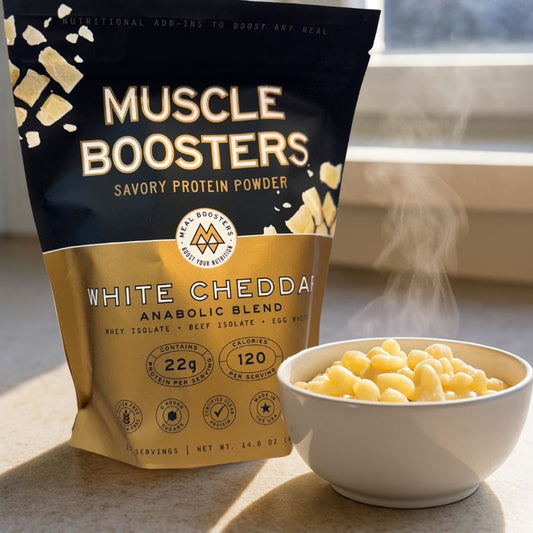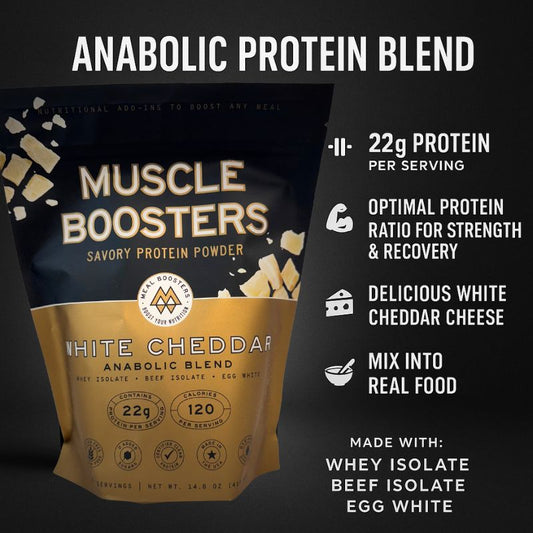What Happens to Your Body Without Enough Collagen?

You’ve probably heard about collagen being the secret to youthful skin and joint support, but what really happens when your body doesn’t get enough? Collagen is the most abundant protein in the human body, making up about 30% of total protein content. It acts as the glue that holds everything together—supporting skin, joints, muscles, bones, and even the gut lining. Yet, starting in your mid-20s, your natural collagen production declines by about 1% per year, and this decline accelerates after age 40. (Proksch et al., 2014, Skin Pharmacology and Physiology)
Without enough collagen, subtle signs like joint stiffness and sagging skin begin to surface, often dismissed as just “getting older.” But collagen deficiency affects far more than just your appearance. Let’s dive into the telltale signs of low collagen levels and how you can support your body’s needs.
1. Achy Joints and Decreased Mobility
If climbing the stairs or going for a run has become more challenging, collagen deficiency could be playing a role. Collagen is a key component of cartilage—the tissue that cushions joints and allows for smooth movement. Without adequate collagen, cartilage wears down, leading to joint pain, stiffness, and conditions like osteoarthritis.
A study published in Current Medical Research and Opinion found that adults who supplemented with collagen peptides experienced significant reductions in joint pain compared to a placebo group, particularly those with activity-related joint discomfort. (Clark et al., 2008)
If you’re noticing creaky knees or stiff hips after minimal activity, your body might be signaling a need for more collagen support.
2. Sagging Skin and Fine Lines
Collagen is what gives your skin its firmness and elasticity. As collagen production declines, the skin becomes thinner and loses its ability to retain moisture, resulting in wrinkles, sagging, and dryness. According to research in Dermato-Endocrinology, reduced collagen and elastin fibers are primary factors in skin aging. (Varani et al., 2006)
In a randomized controlled trial published in Skin Pharmacology and Physiology, participants who took collagen supplements for eight weeks saw measurable improvements in skin elasticity and hydration. (Proksch et al., 2014) So, if you’re noticing crow’s feet or drooping skin earlier than expected, it could be more about collagen deficiency than just passing years.
3. Slower Recovery and Muscle Loss
Ever wonder why injuries seem to linger longer as you age? Collagen is essential for tissue repair, making it vital for muscle recovery and wound healing. Low collagen levels can slow down the repair process, leaving you more prone to strains, bruises, and prolonged soreness after workouts.
Muscle mass naturally declines with age—a condition called sarcopenia—but collagen plays a vital role in maintaining muscle strength and integrity. A study in the British Journal of Nutrition found that older adults who supplemented with collagen peptides during resistance training experienced greater improvements in muscle mass and strength compared to those who didn’t. (Zdzieblik et al., 2015)
If you’re working out but not seeing results—or if you’re taking longer to bounce back from injuries—it might be time to prioritize collagen intake.
Other Signs of Collagen Deficiency
While joint pain, sagging skin, and slower recovery are among the most noticeable symptoms, collagen deficiency can also show up in less obvious ways:
✅ Brittle nails that chip easily
✅ Thinning hair or increased hair shedding
✅ Digestive issues, including leaky gut syndrome
✅ Increased dental problems like receding gums
These signs often creep in gradually, making it easy to overlook collagen’s role in your overall health.
How to Boost Your Collagen Levels Naturally
Fortunately, you can take proactive steps to replenish collagen levels and slow the aging process:
🥩 Eat Collagen-Rich Foods: Bone broth, chicken skin, and organ meats are traditional sources of dietary collagen.
🥗 Prioritize Vitamin C: This vitamin is essential for collagen synthesis. Incorporate foods like citrus fruits, bell peppers, and leafy greens.
💧 Use High-Quality Collagen Supplements: Products like Meal Boosters' savory collagen powders are an easy way to integrate collagen into everyday meals—without sugary shakes.
🚫 Avoid Excess Sugar and UV Exposure: Both can accelerate collagen breakdown in the body.
Final Thoughts: Don’t Let Collagen Deficiency Sneak Up on You
Collagen is much more than a beauty buzzword—it’s an essential protein that keeps your body functioning smoothly. Ignoring collagen deficiency can lead to joint pain, sagging skin, weakened muscles, and slower recovery. The good news? Simple dietary changes and high-quality collagen supplements can help you maintain strength, mobility, and a youthful appearance.
You deserve to feel strong, vibrant, and resilient at every age. Don’t wait for the signs of deficiency to catch up—start supporting your body’s collagen needs today. Shop Meal Boosters Savory Collagen here!




